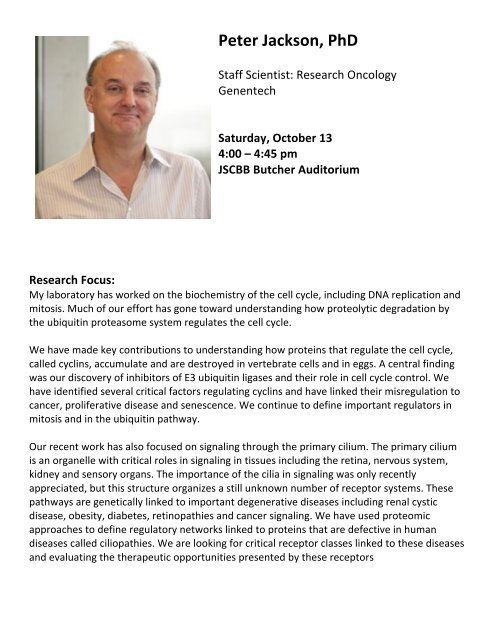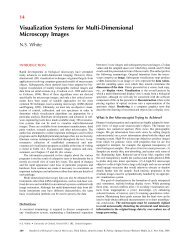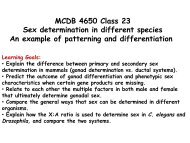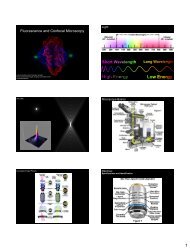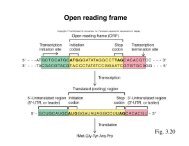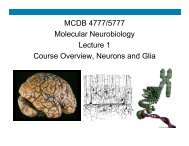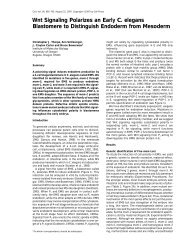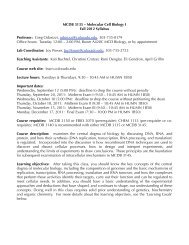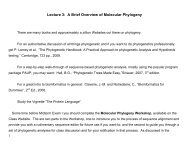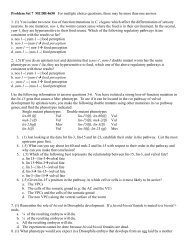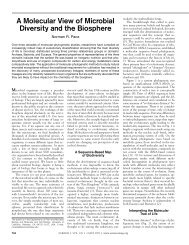2012 Program Booklet - MCD Biology - University of Colorado Boulder
2012 Program Booklet - MCD Biology - University of Colorado Boulder
2012 Program Booklet - MCD Biology - University of Colorado Boulder
Create successful ePaper yourself
Turn your PDF publications into a flip-book with our unique Google optimized e-Paper software.
Peter Jackson, PhD<br />
Staff Scientist: Research Oncology<br />
Genentech<br />
Saturday, October 13<br />
4:00 – 4:45 pm<br />
JSCBB Butcher Auditorium<br />
Research Focus:<br />
My laboratory has worked on the biochemistry <strong>of</strong> the cell cycle, including DNA replication and<br />
mitosis. Much <strong>of</strong> our effort has gone toward understanding how proteolytic degradation by<br />
the ubiquitin proteasome system regulates the cell cycle.<br />
We have made key contributions to understanding how proteins that regulate the cell cycle,<br />
called cyclins, accumulate and are destroyed in vertebrate cells and in eggs. A central finding<br />
was our discovery <strong>of</strong> inhibitors <strong>of</strong> E3 ubiquitin ligases and their role in cell cycle control. We<br />
have identified several critical factors regulating cyclins and have linked their misregulation to<br />
cancer, proliferative disease and senescence. We continue to define important regulators in<br />
mitosis and in the ubiquitin pathway.<br />
Our recent work has also focused on signaling through the primary cilium. The primary cilium<br />
is an organelle with critical roles in signaling in tissues including the retina, nervous system,<br />
kidney and sensory organs. The importance <strong>of</strong> the cilia in signaling was only recently<br />
appreciated, but this structure organizes a still unknown number <strong>of</strong> receptor systems. These<br />
pathways are genetically linked to important degenerative diseases including renal cystic<br />
disease, obesity, diabetes, retinopathies and cancer signaling. We have used proteomic<br />
approaches to define regulatory networks linked to proteins that are defective in human<br />
diseases called ciliopathies. We are looking for critical receptor classes linked to these diseases<br />
and evaluating the therapeutic opportunities presented by these receptors


